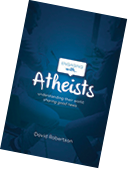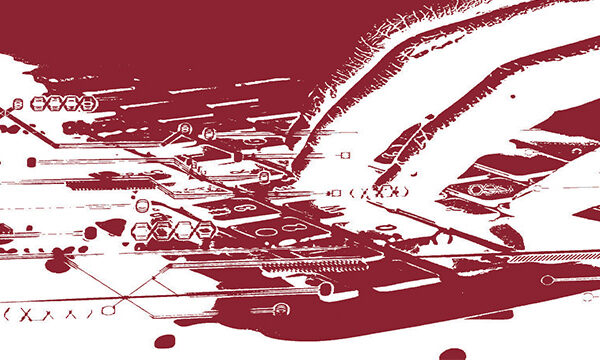Back to series
Leveling the Playing Field:
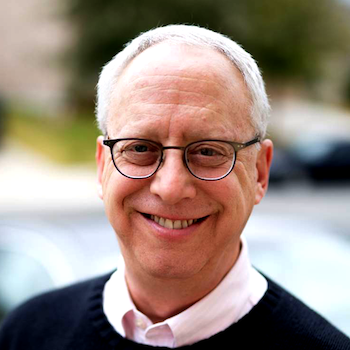

Recommended Reading:
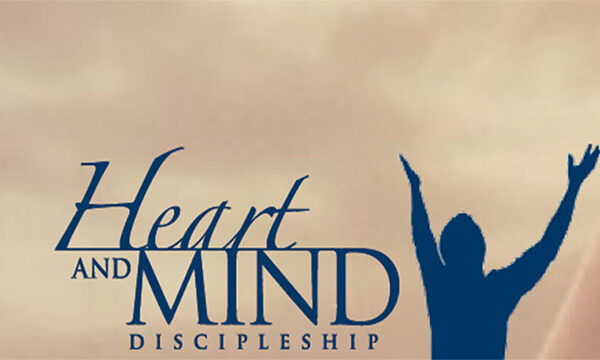
Download or Listen to Audio
Leveling the Playing Field:
A Strategy for Pre-Evangelism
Click here to open a Print - Friendly PDF
Not long ago, I watched a hockey game and marveled at how the Chicago Blackhawks dominated play against the Tampa Bay Lightning. No matter how hard Tampa Bay tried to intercept the puck and clear their zone, the Blackhawks relentlessly pummeled the Lightning goalie.
After what seemed like an eternity, the worn out goalkeeper hung on to a shot to stop play with the hopes of resetting the game in a more balanced way. I smiled when the play-by-play commentator tried to make sense of this lopsided contest by announcing, “It seems like the ice is tilted!”
Of course, the ice was not tilted, but the phrase got my imagination running. What if the players came out from their locker rooms before the game and saw a tilted ice rink? I imagine one team would rejoice while the other would call its lawyers. No hockey player in his right mind would even put his skate on the ice to compete until the rink was leveled.
 The same would be true for any athletic contest. If the playing field isn’t level, you shouldn’t even start the competition.
The same would be true for any athletic contest. If the playing field isn’t level, you shouldn’t even start the competition.
I wonder if our world today, spiritually speaking, doesn’t resemble a tilted ice rink or an uneven playing field.
Before we even start some evangelistic conversations, the deck is stacked against us, as nonbelievers assume they’re morally or intellectually superior to us. Many outside the faith see us as narrow-minded, intolerant, homophobic simpletons.
Before telling people the good news of God’s love, perhaps we need to level the playing field so our words are considered rather than dismissed.
I believe Paul employed a version of this strategy when he began his oration on Mars Hill with the provocative words, “Men of Athens, I perceive that in every way you are very religious” (Acts 17:22 ESV).
Given what we know about his audience, made up of Epicureans and Stoics who liked to talk about whatever was the latest idea, they might have argued with Paul. They might have insisted that, in fact, they most certainly were not religious.
They were intellectuals who didn’t fall for such silly superstitions like the majority of Athenians who erected all those statues and monuments. But Paul knew—as we need to realize—that everyone is religious about something. All people base their lives on something that gives them meaning, purpose, hope, or a reason to get out of bed.
And some people hold some aspects of their worldview “by faith” even if they would never use that terminology.
So Paul began by leveling the playing field so his hearers could consider that they, just like Paul, hold some presuppositions without verifiable proof.
In our day, people may tell us that they believe only what can be “proven” by science. They would never believe anything “by faith.” But consider that their assumption—that science is a better way of knowing truth than by faith—is something they could never prove by science! It’s a leap of faith. (This might take a bit of reflection, but I think it’s worth the investment of time.)
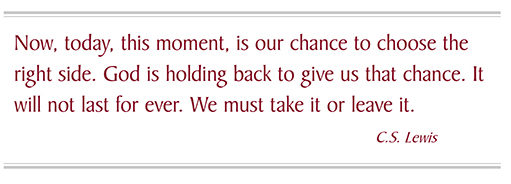 I also wonder if Jesus sought to level the playing field before proclaiming the gospel to some of His skeptical hearers.
I also wonder if Jesus sought to level the playing field before proclaiming the gospel to some of His skeptical hearers.
Why else would He refuse to give a straight answer to the man who asked Him, “Good teacher, what must I do to inherit eternal life?” (Mark 10:17 ESV).
If ever there was a perfect set up for a gospel presentation, that was it. But Jesus chose to answer the man’s question with a question, “Why do you call me good?” In addition to other goals behind this question, Jesus aimed to level the playing field by getting the man to see he wasn’t as righteous as he assumed he was.
The rest of the dialogue bears this out. And we should note that Jesus never got around to telling the man about His impending sacrificial death on the cross. Until the man’s heart had been “leveled,” Jesus knew His words would be “pearls before swine.”
We need to do the same thing today. We need to show people that their atheism, agnosticism, naturalism, or any variety of unbelief rests on foundations that cannot be proven in a laboratory. We want them to be honest about their faith position so we can compare it to our faith position.
Timothy Keller models this well in his best-selling book The Reason for God. In his introduction, he urges Christians and non-Christians to admit their doubts. For believers, “such a process will lead you, even after you come to a position of strong faith, to respect and understand those who doubt.” Skeptics, on the other hand, “must learn to look for a type of faith hidden within their reasoning. All doubts, however skeptical and cynical they may seem, are really a set of alternate beliefs.”1
This is difficult but necessary preparation for a proclamation of the gospel. It can sound something like this:
You: I’d like to talk to you about your religious beliefs.
Your sister: Oh, I don’t have any religious beliefs. I’m not religious like you are. I only accept things that I can prove rationally or scientifically.
You: But that sounds like a very religious thing to say.
Your sister: What do you mean?
You: Why do you think science and reason are better ways to determine truth than religion is?
Your sister: Because they just are.
You: Can you prove that scientifically?
Your sister: Can I prove what scientifically?
You: That scientific beliefs are more sound than religious ones.
Your sister: Well, no. I can’t. But it’s just obvious, isn’t it?
You: Not to me. And not to a lot of other people either. In fact, it takes a fair amount of faith to believe in science the way you do.
Your sister: Are you criticizing me?
You: Not at all. I just think we have more in common than you think. We both accept certain things by faith. You have faith in science. I have faith in religion. I’d just like to compare our two faiths.
Your sister: Hmmm. I never thought of it that way.
I realize some scenarios might not go so well. But it’s worth a try. Especially if you face antagonism to your faith that starts off the whole conversation in a bad direction. If people begin with unfair jabs like “Why are you Christians so intolerant?” or “Why do Christians hate gays so much?” or “You’re not one of those anti-science idiots, are you?” you should not take the bait and start to answer their question.
You’re about as likely to see success as a hockey team agreeing to play uphill on a tilted rink. Level the playing field first and see if the conversation moves along better—and seems more amicable. Here are some other ways this strategy might start:
Your non-Christian friend: Why are you Christians so intolerant?
You: Well, everyone’s intolerant of some things, right? Aren’t you? I think the question for all of us is, how do we determine what we should tolerate and what should we reject?
or
Your non-Christian friend: Why do Christians hate gays so much?
You: Hate? That’s a pretty strong word. I think both gays and Christians today have a pretty serious challenge. We’ve got to find different ways to address this very sensitive issue, and there’s plenty of blame to go around on both sides. Some people certainly are homophobic. But I think there may also be a fair amount of people who are Christophobic.
or
Your non-Christian friend: You’re not one of those anti-science idiots, are you?
You: Is that a real question? It doesn’t sound like the kind of even-handed way a scientist would investigate things. I’d love to talk about science and faith. But could we try to avoid words like idiot?
Our society has become more polarized and argumentative than ever. The very tone of most radio talk shows should cause most people to blush—and then switch stations. We need to find ways to lower the temperature while challenging people to think clearly. Leveling the playing field may be one of those ways that help people move from “you’ve got to be kidding” to “maybe I should consider this” and then, prayerfully, to “this is the best news I’ve ever heard.”
Notes:
1 Timothy Keller, The Reason for God, (New York: Penguin Group, USA, 2008), xvi-xvii.

Randy Newman
Senior Fellow for Apologetics and Evangelism, CSLIRandy Newman (1956-2024) was the Senior Fellow for Apologetics and Evangelism at the C.S. Lewis Institute. He taught at several evangelical seminaries. After serving for over 30 years with Campus Crusade for Christ, he established Connection Points, a ministry to help Christians engage people’s hearts the way Jesus did. He has written seven books, Questioning Evangelism, Corner Conversations, Bringing the Gospel Home, Engaging with Jewish People, Unlikely Converts: Improbable Stories of Faith and What They Teach Us About Evangelism, Mere Evangelism. and his most recent, Questioning Faith: Indirect Journeys of Belief through Terrains of Doubt. Randy has also written numerous articles about evangelism and other ways our lives intertwine with God’s creation. He earned his MDiv and PhD in Intercultural Studies from Trinity International University. Randy went home to be with the Lord in May 2024.

Recommended Reading:
The Engaging with...series (The Good Book Company, 2014)
TA new series of short books (96 pages each) that helps Christians understand the beliefs of people of different religious and worldviews, and how to reach out to them with the good news of Jesus in a relevant and clear way. These titles are now available: Engaging with Atheists, by David Robertson; Engaging with Muslims, by John Klaasen; Engaging with Hindus, by Robin Thomson.
 COPYRIGHT: This publication is published by C.S. Lewis Institute; 8001 Braddock Road, Suite 301; Springfield, VA 22151. Portions of the publication may be reproduced for noncommercial, local church or ministry use without prior permission. Electronic copies of the PDF files may be duplicated and transmitted via e-mail for personal and church use. Articles may not be modified without prior written permission of the Institute. For questions, contact the Institute: 703.914.5602 or email us.
COPYRIGHT: This publication is published by C.S. Lewis Institute; 8001 Braddock Road, Suite 301; Springfield, VA 22151. Portions of the publication may be reproduced for noncommercial, local church or ministry use without prior permission. Electronic copies of the PDF files may be duplicated and transmitted via e-mail for personal and church use. Articles may not be modified without prior written permission of the Institute. For questions, contact the Institute: 703.914.5602 or email us.
-
Recent Podcasts
Questions That Matter – Pippa Cramer and The Hymns We Love
by Pippa Cramer, Randy Newman on February 21, 2025Many people grew up singing Christian hymns. Pippa...Read More
-
Conversational Apologetics
by Michael Ramsden, Aimee Riegert on February 21, 2025
-
Questions That Matter – Heather and Ashley Holleman and the Greatness of Conversation
by Randy Newman, Heather Holleman on February 14, 2025
-
Recent Publications
The Impact of Technology on the Christian Life
by Tony Reinke on February 14, 2025"It’s applied technique. So it’s an art. It’s...Read More
-
C.S. Lewis and the Crisis of the Modern Self
by Thiago M. Silva on February 1, 2025
-
Why Are Christians So Hypocritical?
by William L. Kynes on January 1, 2025
0
All Booked
0.00
All Booked
0.00
All Booked
23993
Heart and Mind Discipleship Live Online Small Group 8:00 PM ET
https://www.cslewisinstitute.org/?event=heart-and-mind-discipleship-live-online-small-group-800-pm-et&event_date=2025-02-25®=1
https://www.paypal.com/cgi-bin/webscr
2025-02-25

Next coming event
Days
Hours
Minutes
Seconds
Heart and Mind Discipleship Live Online Small Group 8:00 PM ET
On February 25, 2025 at 8:00 pmSpeakers

Randy Newman
Senior Fellow for Apologetics and Evangelism, CSLI
Team Members

Randy Newman
Senior Fellow for Apologetics and Evangelism, CSLIRandy Newman (1956-2024) was the Senior Fellow for Apologetics and Evangelism at the C.S. Lewis Institute. He taught at several evangelical seminaries. After serving for over 30 years with Campus Crusade for Christ, he established Connection Points, a ministry to help Christians engage people’s hearts the way Jesus did. He has written seven books, Questioning Evangelism, Corner Conversations, Bringing the Gospel Home, Engaging with Jewish People, Unlikely Converts: Improbable Stories of Faith and What They Teach Us About Evangelism, Mere Evangelism. and his most recent, Questioning Faith: Indirect Journeys of Belief through Terrains of Doubt. Randy has also written numerous articles about evangelism and other ways our lives intertwine with God’s creation. He earned his MDiv and PhD in Intercultural Studies from Trinity International University. Randy went home to be with the Lord in May 2024.



